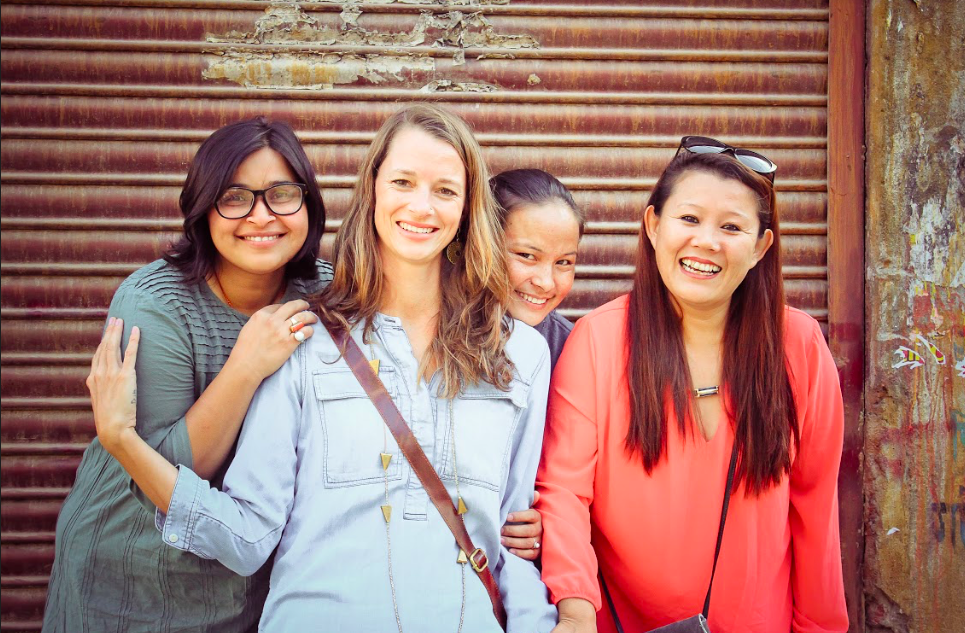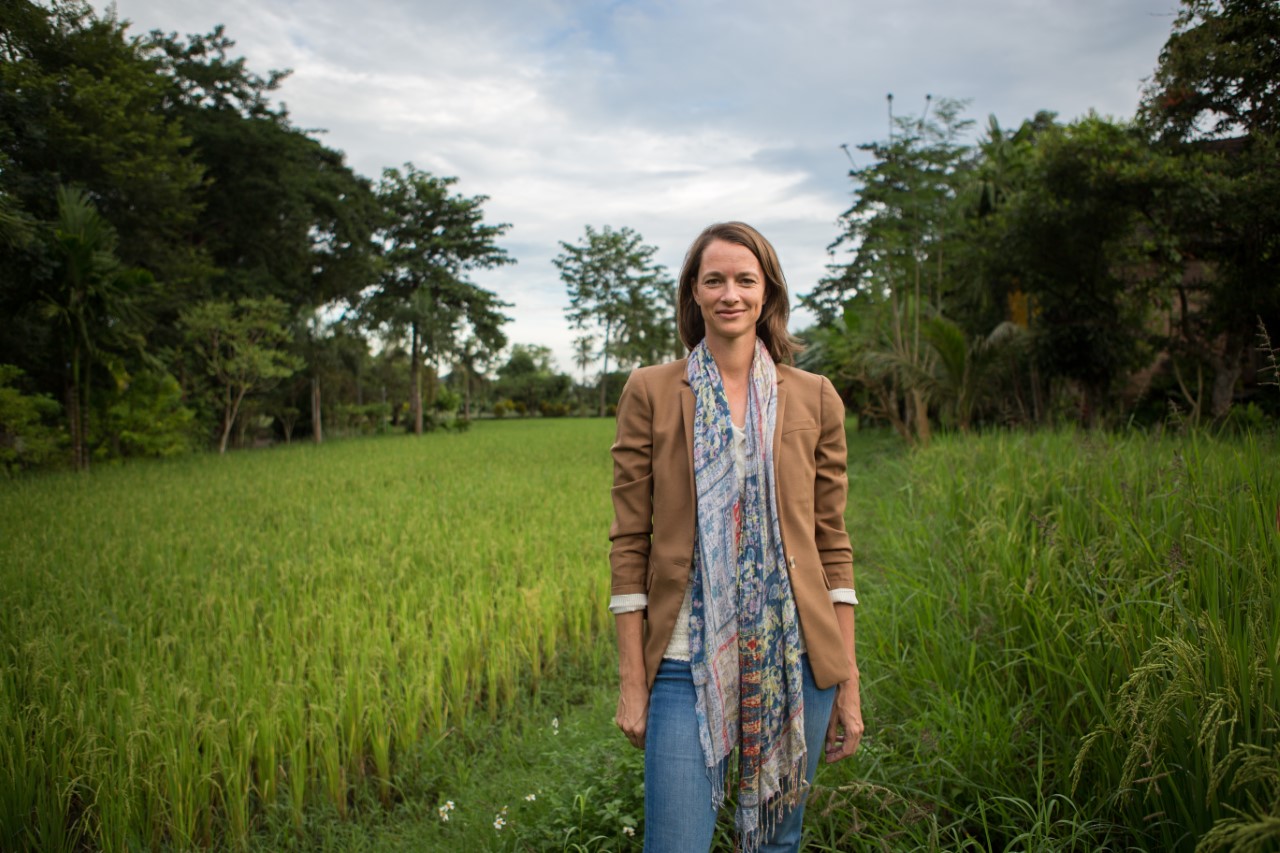We recently sat down with Melody Murray, one of the newest members of HOPE’s board of directors, to discuss what she learned over a lifetime of entrepreneurship, empowerment, and advocacy. Hers is a story only God could write—influenced by a little red produce wagon, “orphans” whose parents were very much alive, and a cold call from the Dalai Lama.
Q: You’ve been described as a “serial entrepreneur.” Tell us about the first business you launched (childhood lemonade stands included).
A: Both my parents had farming backgrounds. When I was about 3 years old, they bought a house in the Kansas City suburbs that had a lot right next to it and turned it into a little farm. We had a huge vegetable garden. A few years later, my mom told me that I could sell what was left of our harvest after she kept what she wanted for our family. I remember thinking that was just phenomenal, that I could take a little seed and put it in the ground, and it would produce something I could sell to make money.
I started snapping and bagging green beans, and I would add as much value to the product as I could. I knew if I made them look good, then I could sell them for more money. I put them in my little red wagon, went down the street, and the first day I made $44. As a 6-year-old, that was a big deal!
Mom said I didn’t necessarily care about profits, but I loved to make money!
My siblings and I started a lawn-mowing business when I was in my teen years, and we grew that business to be fairly lucrative, and my brother sold it and helped pay for his college. We just had it in us. If I’m not careful, I’ll start a business every week! I never took a business class in my life. I probably should have gone to business school in college, but I majored in intercultural studies because I wanted to work internationally and really learn about people and other cultures and be missional, more than anything.
Q: How did a vision for business as mission take shape within you?
A: It was really unheard of when my husband, Dave, and I started our journey. We met and married at university. We had a common vision and mission. We ended up doing work at an AIDS orphanage in Uganda, and that’s where this interest in using my business and entrepreneurship skills for creating good in this world was sparked. I saw the message of Jesus and His heart for the world playing out in a business context for the first time.
There were 290 kids at the orphanage, and about 80% of them had at least one living parent. The parents would visit sometimes. It was very confusing for the kids. There were some good things at this orphanage. They were giving the kids a lot of experiences with truth and with Jesus—worship and teaching—but there was a part that felt very broken, challenging, and surprising to me. I was so confused why moms were having to drop off their babies and no one was helping them financially provide for their kids, instead of them being forced to give their child away.
It was a heartbreaking reality for me that sometimes well-meaning Western charity can be detrimental and hurtful.
Dave and I really wanted to provide tools for practical, sustainable livelihood development. And yet we felt so young and ill-equipped. We came back to the States and spent about 10 years really trying to learn marketing, sales, and business before we went back overseas.
We realized that the Lord can use business in such practical ways, and it also gives us depth of relationship with people that we’re serving.
It’s something the Church sometimes sadly has left out of the conversation a little bit too much.
Sometimes we don’t think about all the repercussions of our actions, and we’re just trying to help, but if we don’t fully think through the strategy and structures behind it, it can be quite broken. I’ve had to learn that the hard way many times in my own life.
Q: After those 10 years in the States, did you return to Africa to deploy what you had learned?
A: God brought us an opportunity in Asia that we just knew was for us. The Dalai Lama was working with some folks in the Washington, D.C., area—congresspeople and ambassadors at the time—and asking for help in job creation and economic opportunity for Tibetan refugees. I still am not sure how they got our contact information or why they wanted us, but they knew of some economic development work we were doing and asked us to consider that request. Dave and I have done some work in Central and South America, and we have some partners in Africa, but Asia keeps pulling us back. It is not an easy place to do missional microenterprise development, but it is definitely where we seem to be drawn to over the last 15 years.

Mel Murray with coworkers at JOYN
In founding JOYN, we’ve been humbled and blessed to be a conduit for underserved communities to bring their handmade bags and textiles to global markets, and through our nonprofit sister org, JoyCorps, we’ve had the utmost privilege of being a part of supporting and empowering entrepreneurs with a redemptive vision to grow their businesses and bring jobs to their communities.
Q: Describe the potential you see in entrepreneurs like the men and women HOPE serves.
A: In many ways, I see untapped potential that is just ready to be ignited. These hardworking, community-minded entrepreneurs are critical for developing economies. In terms of our time and resources, I don’t think you can find a better investment than these individuals.
Your heart wants to help as many people as you can as quickly as you can, but we found that the best use of our time was to resource and equip local leaders and entrepreneurs. They were going to be more effective than we ever could be in not only creating jobs and businesses but also in caring for their community.
We will always in some ways be those outsiders trying to help. But if you can find those insiders who have a heart for their community, then they’re really great investments in terms of our time, resources, and energy.
Mel Murray is the founder and CEO of JOYN, a textile company connecting makers to markets, and JoyCorps, a nonprofit dedicated to empowering entrepreneurs who are dedicated to creating jobs and bringing dignified employment.

















Mel looks like an excellent addition to the Hope board! Lots of cross cultural missions experience and a heart for helping others flourish in their context.